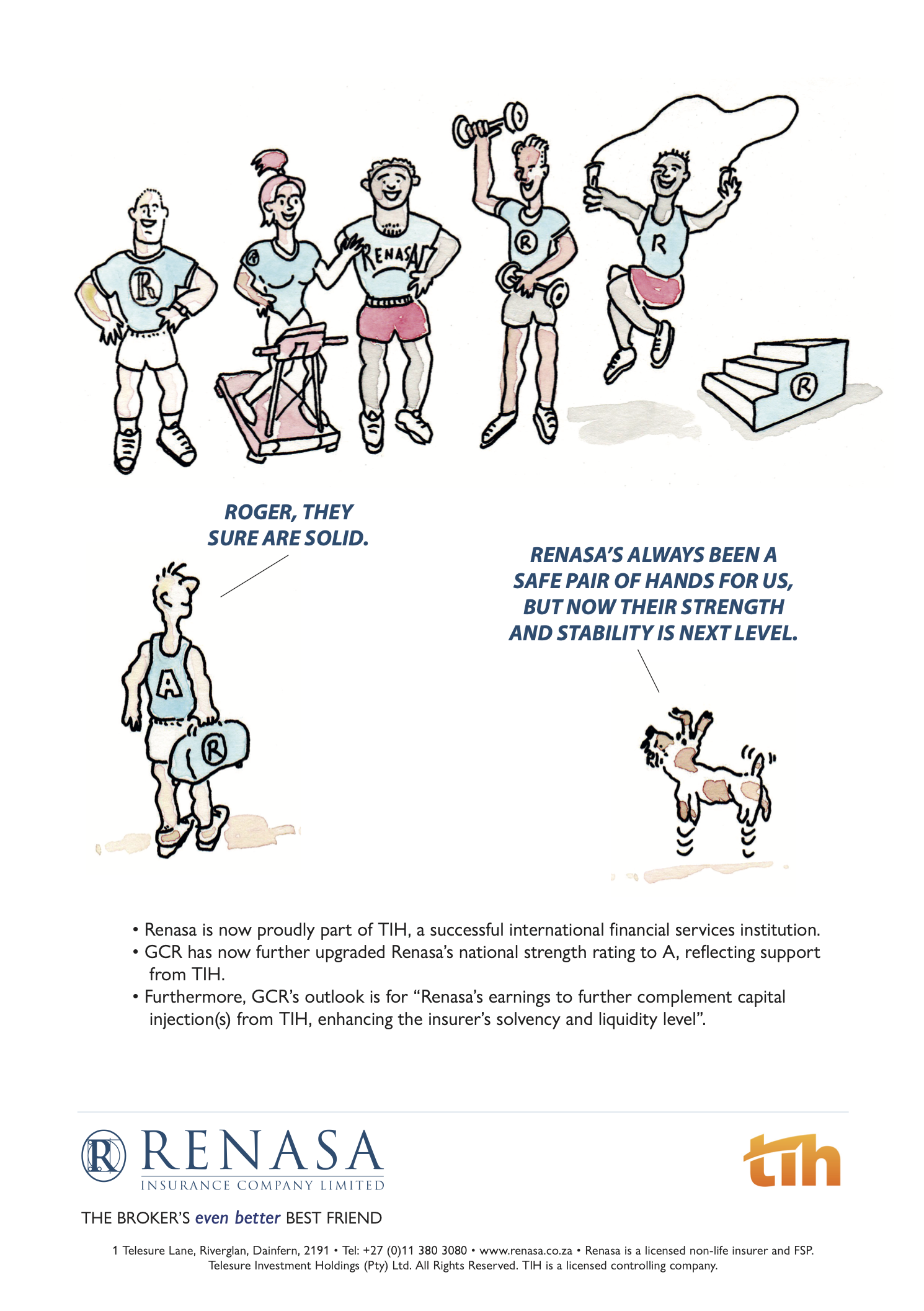Herman Scheepers, CEO, Renasa Insurance

The insurance industry entered 2025 with a sense of optimism. Despite economic challenges, market sentiment remains positive, and brokers share a confident outlook.
However, beneath this optimism, leaders face a rapidly evolving landscape characterised by technological disruptions, economic uncertainties, and a pressing need for skilled talent. The challenge for insurers is to stay relevant while navigating these shifts effectively.
The Pace of technological change – One of the biggest concerns for industry leaders is the accelerating pace of technological advancements. The integration of new technologies with legacy systems is a complex task, requiring not only technical expertise but also strategic vision. Companies must embrace innovation without compromising stability.
Moreover, the competition for IT talent is intensifying. South Africa, like many other markets, is experiencing a talent drain as skilled professionals seek opportunities abroad. This global competition for expertise adds another layer of complexity for insurers trying to implement digital transformation initiatives.
As insurers integrate more digital touchpoints and enhance connectivity across platforms, cybersecurity risks increase. A more connected environment brings new vulnerabilities, making it crucial for insurers to invest in robust security frameworks. Protecting customer data and maintaining trust are fundamental priorities in this rapidly evolving landscape.
Empowering and motivating staff – Change often brings uncertainty, which means that managing staff morale during periods of transformation is essential. Transparent communication about the company’s vision and development plans can alleviate concerns and foster engagement. Involving employees in the innovation journey not only helps them understand their role in the transformation but also creates a sense of ownership.
Recognition and reward are key levers to maintaining high performance. In an industry where technology plays an increasing role, the value of human expertise cannot be underestimated. Employees who feel valued and empowered are more likely to contribute meaningfully to a company’s growth and adaptation efforts.
That said, recruiting and retaining top-tier talent is a growing challenge, particularly in specialised fields. Skilled professionals command high salaries, and the risk of losing them to global competitors is ever-present. Competitive compensation could complement strategies for long-term employee retention. Upskilling and reskilling existing employees can be a solution, ensuring that teams remain agile and adaptable.
A pressing concern among employees is the fear of being replaced by automation. However, automation and AI are tools designed to enhance efficiency, not eliminate jobs. The key is to train employees to work alongside these technologies, leveraging them to improve decision-making and customer service. As the industry evolves, those who embrace new skills will find themselves in a stronger position to add value.

Renasa has always been the broker’s best friend.
Our entire business focus is exclusively on helping our intermediaries outcompete their competitors.
Now, as part of TIH, South Africa’s powerful insurance group,
we commit to do even more for our brokers.

RENASA’S ALWAYS BEEN A SAFE PAIR OF HANDS FOR US, BUT NOW THEIR STRENGTH AND STABILITY IS NEXT LEVEL.
- Renasa is now proudly part of TIH, a successful international financial services institution.
- GCR has now further upgraded Renasa’s national strength rating to A, reflecting support from TIH.
- Furthermore, GCR’s outlook is for “Renasa’s earnings to further complement capital injection(s) from TIH, enhancing the insurer’s solvency and liquidity level”.
Renasa is a licensed non-life insurer and FSP. Telesure Investment Holdings (Pty) Ltd. All Rights Reserved. TIH is a licensed controlling company.
Innovation as a strategic priority – For insurers, fostering a culture of innovation is not optional—it is a necessity. The challenge is to ensure that innovation is a continuous process rather than an isolated initiative. This requires dedicated resources and a strategic agenda that prioritises long-term technological adaptation.
One of the greatest pitfalls for businesses is getting caught up in solving past problems instead of focusing on future opportunities. Leaders must strike a balance between addressing legacy challenges and investing in forward-thinking solutions. Often, innovation can help leapfrog over historical inefficiencies, providing a more efficient path forward.
A well-defined vision is therefore essential for navigating change successfully. Leaders must articulate where the business is headed and ensure that employees and stakeholders buy into that vision. When a company’s direction is clear, it fosters alignment and drives innovation from within.
At the same time, it is also critical to remain flexible. The insurance industry is evolving at a rapid pace, and businesses must be prepared to pivot when necessary. A rigid approach can lead to stagnation, whereas agility allows companies to stay ahead of market shifts.
Leveraging group strengths – Being part of a larger group can be a strategic advantage. Access to shared resources, expertise, and infrastructure enhances an insurer’s ability to innovate and remain competitive. Collaboration across different business lines can generate fresh ideas and solutions that drive industry-wide advancements.
In 2025, the insurance industry is set for both challenges and opportunities. Leaders who embrace change, invest in talent, and foster a culture of continuous innovation will be best positioned for success. By balancing technological advancements with human expertise, insurers can navigate this transformative era with confidence.

